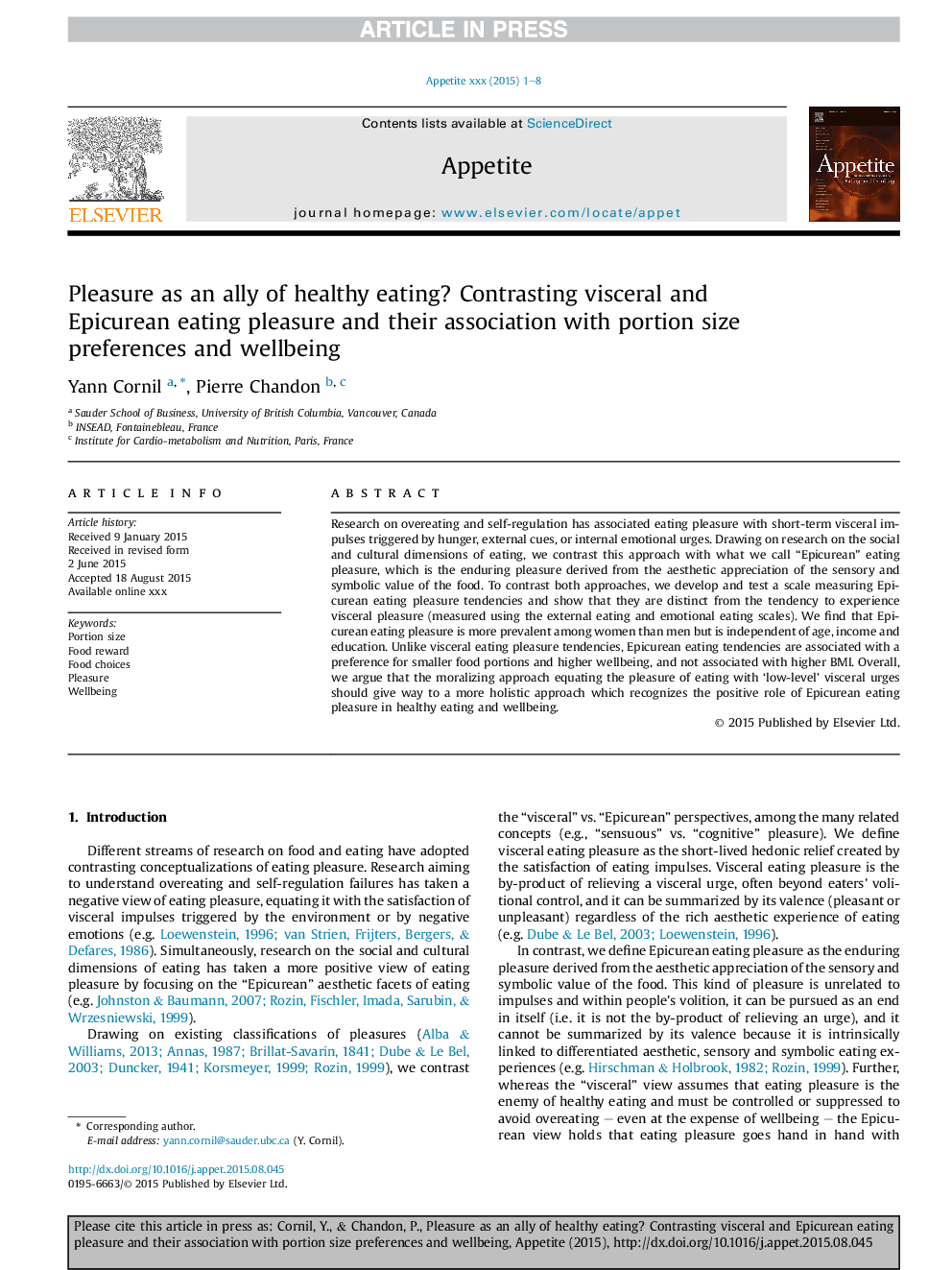| Article ID | Journal | Published Year | Pages | File Type |
|---|---|---|---|---|
| 7306955 | Appetite | 2016 | 8 Pages |
Abstract
Research on overeating and self-regulation has associated eating pleasure with short-term visceral impulses triggered by hunger, external cues, or internal emotional urges. Drawing on research on the social and cultural dimensions of eating, we contrast this approach with what we call “Epicurean” eating pleasure, which is the enduring pleasure derived from the aesthetic appreciation of the sensory and symbolic value of the food. To contrast both approaches, we develop and test a scale measuring Epicurean eating pleasure tendencies and show that they are distinct from the tendency to experience visceral pleasure (measured using the external eating and emotional eating scales). We find that Epicurean eating pleasure is more prevalent among women than men but is independent of age, income and education. Unlike visceral eating pleasure tendencies, Epicurean eating tendencies are associated with a preference for smaller food portions and higher wellbeing, and not associated with higher BMI. Overall, we argue that the moralizing approach equating the pleasure of eating with 'low-level' visceral urges should give way to a more holistic approach which recognizes the positive role of Epicurean eating pleasure in healthy eating and wellbeing.
Related Topics
Life Sciences
Agricultural and Biological Sciences
Food Science
Authors
Yann Cornil, Pierre Chandon,
